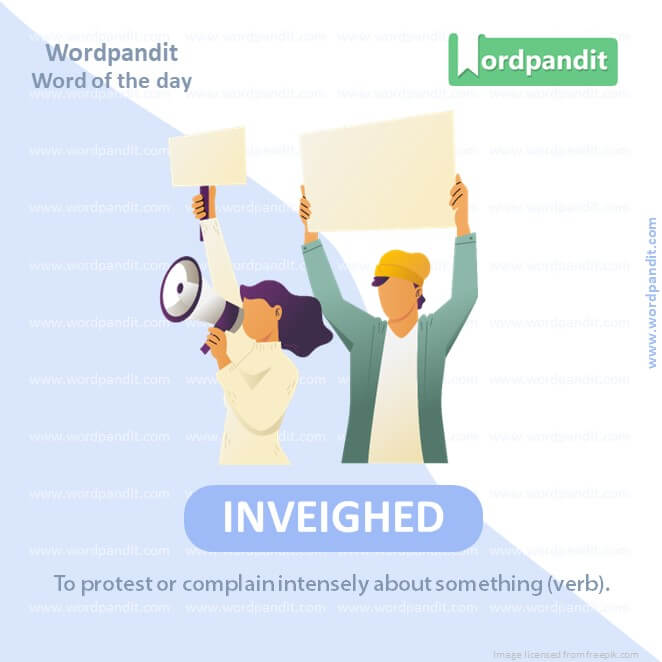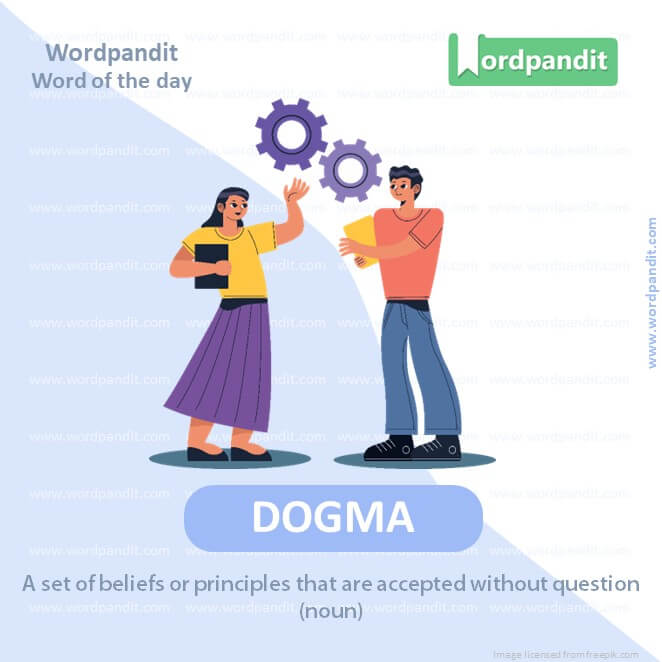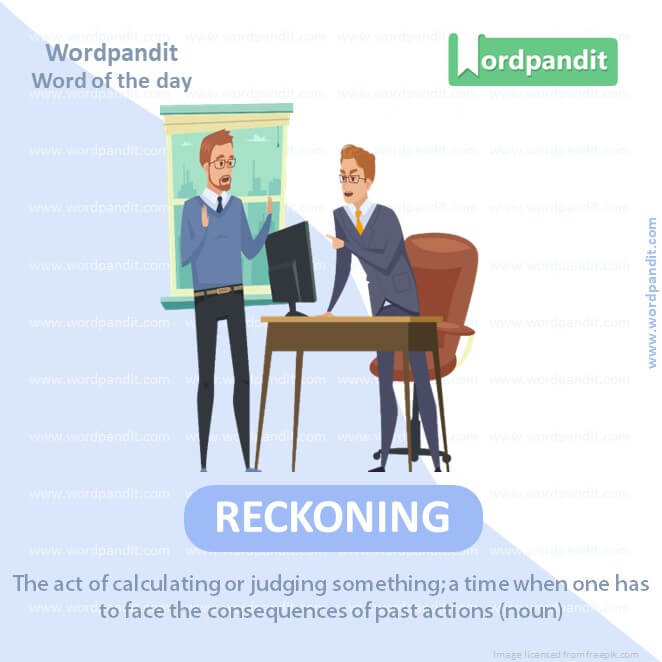Daily Vocabulary Words: List of Daily Used Words in Leading International Newspapers
Hi there. Welcome to this special section @ Wordpandit.
Our endeavour here is very simple: to highlight important daily vocabulary words, which you would come across in leading newspapers in the country. We have included the following newspapers in our selection:
• The New York Times
• The Washington Post
• Scientific American
• BBC
• The Guardian
• Psychology Today
• Wall Street Journal
• The Economist
We are putting in extensive work for developing your vocabulary. All you have got to do is be regular with this section and check out this post on a daily basis. This is your repository of words that are commonly used and essentially, we are posting a list of daily used words. Hence, this has significant practical application as it teaches you words that are used commonly in leading publications mentioned above.
Visit the website daily to learn words from leading international newspapers.

WORD-1: RHETORIC
CONTEXT: The Republican establishment was, in Ahmari’s view, ill-equipped to capitalize on this shift. Once one got past the rhetoric, he writes, the GOP’s new pro-worker posture was largely divorced from the material problem of private economic coercion…
SOURCE: Democracy Journal
EXPLANATORY PARAGRAPH: Rhetoric is the fancy way we use words to convince people of something. Imagine you want extra dessert and you tell your parents all the reasons you should get it—that’s using rhetoric!
MEANING: The art of using language effectively to persuade or influence people (noun).
PRONUNCIATION: Reh-tor-ik
SYNONYMS: Oratory, Eloquence, Persuasion, Discourse, Expression, Communication, Diction
USAGE EXAMPLES:
1. The politician used strong rhetoric to win votes.
2. Her rhetoric in the debate was very convincing.
3. The teacher taught the basics of rhetoric in English class.
4. The book is filled with poetic rhetoric.

WORD-2: COERCION
CONTEXT: Once one got past the rhetoric, he writes, “the GOP’s new pro-worker posture was largely divorced from the material problem of private economic coercion…
SOURCE: Democracy Journal
EXPLANATORY PARAGRAPH: Coercion is when someone makes you do something you don’t want to do by scaring you or forcing you. It’s not nice and it’s like making someone give up their turn on the swing because you say you’ll take their toys if they don’t.
MEANING: The act of making someone do something against their will, usually through force or threats (noun).
PRONUNCIATION: Koh-er-shun
SYNONYMS: Force, Pressure, Intimidation, Compulsion, Duress, Manipulation, Constraint
USAGE EXAMPLES:
1. He faced charges for using coercion.
2. Coercion is not a way to resolve conflicts.
3. The boss was accused of coercion to gain support.
4. She felt coercion to participate in the event.

WORD-3: INVEIGHED
CONTEXT: Republicans had no theory of the case to present to these voters; they had no real story to tell. They inveighed against “woke capital,” but they offered as a solution the same stale anti-tax, deregulatory dogma…
SOURCE: Democracy Journal
EXPLANATORY PARAGRAPH: Inveighed means to speak against something very strongly because you don’t like it. It’s like yelling, “I don’t like broccoli!” when you see it on your plate.
MEANING: To protest or complain intensely about something (verb).
PRONUNCIATION: In-vayd
SYNONYMS: Protest, Rail, Complain, Criticize, Denounce, Condemn, Lambaste
USAGE EXAMPLES:
1. She inveighed against the new policy.
2. The mayor inveighed against the rise in crime.
3. He inveighed about the unfair treatment he received.
4. The community inveighed against the closure of the local hospital.

WORD-4: DOGMA
CONTEXT: They inveighed against “woke capital,” but they offered as a solution the same stale anti-tax, deregulatory dogma…
SOURCE: Democracy Journal
EXPLANATORY PARAGRAPH: Dogma is a rule or a belief that people say you must follow, and you’re not supposed to question it. Like when grandma says, “Always eat your vegetables,” and expects everyone to do it.
MEANING: A set of beliefs or principles that are accepted without question (noun).
PRONUNCIATION: Dawg-muh
SYNONYMS: Doctrine, Creed, Belief, Ideology, Teaching, Tenet, Canon
USAGE EXAMPLES:
1. The company’s dogma was to always prioritize customer satisfaction.
2. The religious dogma was strictly followed by its believers.
3. Critics argued against the dogma of the organization.
4. He questioned the prevailing dogmas of his time.

WORD-5: RECKONING
CONTEXT: A reckoning has come for tech — and for the rest of us, too. Not so long ago, tech inspired optimism.
SOURCE: Vox
EXPLANATORY PARAGRAPH: Reckoning means counting or figuring something out. It can also mean the time when you have to face the results of what you did, like when you play hide-and-seek and it’s time to see who won.
MEANING: The act of calculating or judging something; a time when one has to face the consequences of past actions (noun).
PRONUNCIATION: Reh-kuh-ning
SYNONYMS: Calculation, Judgment, Assessment, Evaluation, Estimation, Appraisal, Resolution
USAGE EXAMPLES:
1. The reckoning of the final scores was awaited.
2. A day of reckoning is coming for those who broke the law.
3. She had a reckoning with her past mistakes.
4. The business faced a financial reckoning.
WORD-6: BLACK BOX
CONTEXT: So much of what happens to our data happens inside a black box; we don’t control it and we don’t know what exactly is being collected, who has access to it, and what it’s being used for. And few of us truly understand the artificially intelligent technology that’s being introduced to our lives, from the Alexa smart assistants that are listening in our homes to the systems that are screening our job applications, surveilling our faces, and trying to influence our political discourse — and even our votes.
SOURCE: Vox
EXPLANATORY PARAGRAPH: A black box is something that does its job, but you don’t know how it works inside. It’s like a magic box where you put something in and get something else out, but you can’t see what happens inside the box.
MEANING: A system or device whose inner workings are not understood or are mysterious (noun).
PRONUNCIATION: Blak boks
SYNONYMS: Enigma, Mystery, Puzzle, Conundrum, Riddle, Enigma, Cipher
USAGE EXAMPLES:
1. The computer program was a black box to most employees.
2. In airplanes, the black box records important information.
3. Scientists used a black box model for the experiment.
4. No one understood how the black box mechanism worked.
WORD-7: DISCOURSE
CONTEXT: So much of what happens to our data happens inside a black box; we don’t control it and we don’t know what exactly is being collected, who has access to it, and what it’s being used for. And few of us truly understand the artificially intelligent technology that’s being introduced to our lives, from the Alexa smart assistants that are listening in our homes to the systems that are screening our job applications, surveilling our faces, and trying to influence our political discourse — and even our votes.
SOURCE: Vox
EXPLANATORY PARAGRAPH: Discourse is a fancy word for talking or writing about something in a serious way. If you and your friend have a long chat about what makes a good friend, that’s a discourse!
MEANING: Spoken or written communication or debate (noun).
PRONUNCIATION: Dis-kohrs
SYNONYMS: Conversation, Discussion, Dialogue, Talk, Speech, Communication, Debate
USAGE EXAMPLES:
1. The book is a discourse on ethics.
2. The president gave a discourse on the state of the nation.
3. They engaged in a fruitful discourse about science.
4. The conference was a platform for academic discourse.
Of course! Continuing with the formatting:
WORD-8: QUIP
CONTEXT: Please God, make me good, but not just yet.”
The plea by Augustine of Hippo — later, St. Augustine — was probably an ironic quip; translational accuracy has his seeking to be made chaste and celibate. His words come to mind when I hear declarations of allegiance to democratic values of justice, liberty, and equality of opportunity.
SOURCE: Big Think
EXPLANATORY PARAGRAPH: A quip is a quick, funny remark that makes people laugh. Imagine saying a silly joke quickly when everyone is serious—That’s a quip!
MEANING: A witty or funny comment or remark (noun).
PRONUNCIATION: Kwip
SYNONYMS: Joke, Jest, Wisecrack, Witticism, Pun, One-liner, Sarcasm
USAGE EXAMPLES:
1. He made a quip about the weather.
2. Her quip lightened the mood of the meeting.
3. The comedian is known for his clever quips.
4. She couldn’t resist making a quip during the discussion.
WORD-9: CHASTE
CONTEXT: Please God, make me good, but not just yet.”
The plea by Augustine of Hippo — later, St. Augustine — was probably an ironic quip; translational accuracy has his seeking to be made chaste and celibate. His words come to mind when I hear declarations of allegiance to democratic values of justice, liberty, and equality of opportunity.
SOURCE: Big Think
EXPLANATORY PARAGRAPH: Chaste means being pure or simple in a good way. It’s like having a room with just a bed and a desk, very simple and clean.
MEANING: Pure and simple in design or style; abstaining from extramarital, or especially from all, sexual intercourse (adjective).
PRONUNCIATION: Chayst
SYNONYMS: Pure, Virtuous, Innocent, Modest, Simple, Austere, Unadorned
USAGE EXAMPLES:
1. The chaste architecture of the building was impressive.
2. She lived a chaste life focused on spirituality.
3. The poem was written in a chaste style.
4. The couple vowed to remain chaste until marriage.
WORD-10: CELIBATE
CONTEXT: The plea by Augustine of Hippo — later, St. Augustine — was probably an ironic quip; translational accuracy has his seeking to be made chaste and celibate. His words come to mind when I hear declarations of allegiance to democratic values of justice, liberty, and equality of opportunity.
SOURCE: Big Think
EXPLANATORY PARAGRAPH: Celibate means you decide not to get married or be in a romantic relationship for a special reason, like to focus on other things you think are important.
MEANING: Choosing to abstain from marriage and sexual relations, often for religious reasons (adjective).
PRONUNCIATION: Seh-lih-bayt
SYNONYMS: Chaste, Unmarried, Single, Abstinent, Virtuous, Continent, Ascetic
USAGE EXAMPLES:
1. He chose to remain celibate and focus on his career.
2. The priest took a vow of celibacy.
3. She lives a celibate life by choice.
4. The celibate monk dedicated himself to meditation and prayer.
Vocabulary Words with Meaning
Understanding and retaining vocabulary words with meaning is a key aspect of language acquisition. It helps to communicate more effectively, understand nuances in conversation, and enhance overall language competency. So, how appropriate is your strategy for learning vocabulary words with meaning? Let’s dig deeper.
The first essential practice for learning vocabulary words with meaning is employing them in context. Reading materials such as books, articles, and newspapers gives you exposure to words being used accurately. Not only does this help deduce the meaning of unfamiliar words, but it also demonstrates how vocabulary words with meaning are naturally integrated into written language.
Next, creating a central vocabulary hub speeds up the learning process. Make flashcards or use digital tools for noting down new vocabulary words with meaning. Each card should contain the word, its definition, a sentence that showcases its use, as well as any synonyms or antonyms. Revisiting this hub consistently will cement your understanding of these vocabulary words with meaning.
Another significant strategy is the use of mnemonic devices. Creating mental images or associating words with existing knowledge can help in recalling complex vocabulary words with meaning. This technique makes the process entertaining and significantly boosts memory retention.
Furthermore, practise makes perfect when it comes to vocabulary acquisition. Integrate the new vocabulary words with meaning into your daily conversation, writing exercises, or social media posts. This consistent usage ensures that these words become an inherent component of your language database.
Finally, stay curious about language. Exploring word origins, idioms, or phrases can enthrall interest and encourage deeper connection with vocabulary words with meaning. The journey of language learning becomes not just about memorisation, but also fascinating exploration.
In essence, the journey of mastering vocabulary words with meaning involves context use, a vocabulary hub, mnemonics, practice, and active curiosity. Incorporating these methods into your learning routine ensures a fruitful and enjoyable vocabulary expansion journey.







